‘Mr Shaimiyev’s example is how to live without burning out’
Mintimer Shaimiyev — a state adviser, Tatarstan’s first president — is a big and multifaceted person. On the modern political stage in Russia, he is one of the few people who managed to save both stability and succession of power in his region at the crossroads of eras and continues tirelessly working generating new ideas, implementing more grandiose projects. On Mr Shaimiyev’s birthday, 20 January, Realnoe Vremya’s correspondents talked with those who work with them and know him personally and added some strokes to the birthday man’s portrait.
Talent: “Shaimiyev is a statesman with a capital S”
Shaimiyev’s journey as manager began as early as 1969 when the young, energetic and promising man became a TASSR minister of land improvement and water management. But the big political career started in 1990 when he was elected as chairman of the TASSR Supreme Council and the republic adopted the Declaration on State Sovereignty.
In Marat Galeyev’s opinion, a Tatarstan State Council deputy of six convocations, the republic was lucky to have such a ruler at the life-changing moment for the Russian statehood, during the collapse of the USSR. He says that Perestroika was revolutionary for the country. And at that moment, a leader who could generate ideas for further development unlike a huge number of Soviet managers who had to be ordinary performers not standing out from the crowd was necessary. With his energy and mainly courage in decision-making and taking a risk, Shaimiyev turned out to be salvation for the republic in the early 1990s:
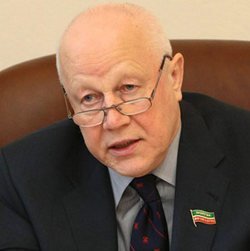
As Galeyev recalls, Mintimer Shaimiyev has always understood society’s political request for some autonomy. And the declaration on sovereignty was adopted mainly for this reason. Moreover, the economy of the republic that was seriously developed compared to most Russian regions required raising the political status.
“It was the first stage of his development as a politician,” Mr Galeyev remembers. “There was a wide range of radical opinions, there were separatists too. Their percentage was tiny but they were the loudest. Mr Shaimiyev managed to find a solution here too: he never said that Tatarstan would separate somehow — it is important for him to save the unity of Tatarstan’s people (and this is seen in what he is doing now). It was his pivot. And even when the federal centre provoked us like: ‘We don’t want to know you”, he always stressed: ‘No, we don’t table such an issue, we simply want more power that will be in line with the development level of the republic that exists”. And in the future, when all conflicts with the federal centre were settled, the creation of constructive relationships began.”
And their settlements cost Shaimiyev a lot of grey hair. Because advisers had a lot of proposals, but the one makes decisions is responsible. His merit here cannot be overestimated. Tatarstan got out of conflicts very decently and not losing face, on the one hand. On the other hand, the foundation of constructive interaction with federal power agencies was laid. So the general doctrine is the following now: don’t argue with anybody in general, both externally and internally.
Marat Galeyev remembers Churchill’s words that the difference between a politician and a statesman is that a politician thinks about the next elections, while the statesman thinks about the next generation.
“And according to this concept, Shaimiyev is a statesman with a capital S, without exaggeration. He began his political career in the late 1980s and is still considered a big politician. This isn’t accidental, and this doesn’t include volatile moments. All features of a statesman are inherent in him.”
Yakov Geller, director general of the Agency for Public Contract of the Republic of Tatarstan JSC, chaired the Office for Housing Use of the Urban Housing Administration in the 90s. He remembers:
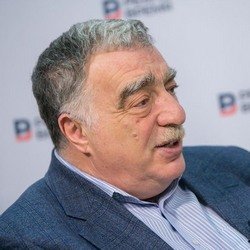
Humanity: “For him, communication with people isn’t a formality”
People who also had a chance to work with Shaimiyev note his phenomenal memory for names and great attention to them. Zilya Valeyeva recalls:
“When I was still a young journalist, I was preparing a report from an important event: fellow countrymen were gathered in the Opera and Ballet Theatre for receiving an award. And as many as 150 people were invited onstage and they all were awarded. Last names were pronounced, and I remember this moment very well: Mr Shaimiyev heard a person being introduced and told him: ‘Look, a very good dairymaid with such a last name used to work in your district’. He replied: ‘Yes, it is my aunt’. And Shaimiyev praised him: ‘You have such a good family of workers!’ And he praised almost everybody this way, nearly 150 people. And I thought then: what a phenomenal memory this manager has! How can one remember so many people and last names from different cities and villages! It was a mystery for me. And then, when you understand the role and position of the manager, I understood much later that it had nothing to do with a mechanical memory. It is, first of all, when a person internalises every meeting, every communication. And then it is etched somewhere so that neither the name, last name nor the story of this person is forgotten. He has always surprised us with his phenomenal memory. He talks precisely with you, looks into your eyes, he doesn’t do it superficially. He doesn’t have a mechanical skill. For him, communication with people isn’t a formality. This is why he always prepares for meetings himself, and we learnt this from him. And his super attention to people then turns into super memory.”
Historian and political expert Rafael Khakimov who worked shoulder to shoulder with the first president as an adviser in political affairs for more than ten years also notes this surprising attraction to people and genuine interest in them:
“He always listens very carefully. He gathers a meeting and listens to everybody first, only then he expresses his opinion. And what is very important for a manager of such a calibre, he can calmly say: ‘While I didn’t notice this detail and didn’t consider it. Thank you for noticing’. And it is a priceless quality — big deeds grow from such attention to a person.”
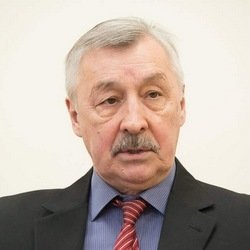
Zilya Valeyeva tells us another illustrative story:
“A delegation of Izhmash once arrived. And after the end of the official programme, they were taken to the Volga River, to nature. The table was laid in a clearing, and there was a tent nearby for those who set the table. And when everybody finished drinking tea, admired the Volga, started to say goodbye, Mr Shaimiyev asked a local head to invite the women who laid the table. They felt embarrassed and didn’t go out. And then he said: ‘I can’t leave this way without saying thank you.’ And he entered this tent. The women were cheeping and screaming — country girls were very shy then. And he couldn’t simply leave without thanking them.”
Ideas: “If a risk isn’t taken, it means there will be nothing”
The scale of the ideas Mr Shaimiyev has is always large. From grandiose repairs of Tatarstan roads and construction of entire micro districts in a programme eliminating dilapidated houses during his presidency to the restoration of holy sites of Islam and Christian Orthodoxy and creation of a network of a new generation of unique educational complexes now as state adviser. All this requires not only colossal energy but also certain determination.
Yakov Geller recalls: Shaimiyev made tough and brave decisions and required the same dedication from his subordinates. For instance, Geller himself once received a task of building a house in 54 days in Azino District, Kazan because the president wanted to house it by New Year despite everything.
“We had only piles on 7 November, while Mr Shaimiyev arrived on 30 December. And the house was almost ready. There was one imperfection: gas was laid inside, while the urban gas service didn’t have the time to do a pressure test. This is why the block of flats could be housed but without gas. I say: ‘The house is ready, as you ordered. It can be housed but without gas.’ While he replies: ‘No, I promised a house with gas.’ And then I offered to house the block of flats on 13 January — both on New Year (though according to the old calendar) and with gas. He called me an artful man but agreed. And we housed this block on 13 January 2000. 20 years have passed, the house is in its place, people live. With gas! He, of course, understood what it cost...”
Shaimiyev’s colleagues and subordinates talk about the countryside gasification programme, how dramatically roads in the republic changed under him, how the first Tatarstan president was one of the first people to start informatisation in the country — at that moment when the Internet seemed a useless toy to many...
Yevgeny Bogachyov — the chairman of the Tatarstan National Bank since 1993 and now director of UNICS BC — remembers how tough it was to find money in the early 90s not only to develop the republic but also simply to regularly pay salaries:
“In 1993, oil cost $6-8 per barrel. The treasury was empty, while we had to pay both pensions and salaries. Then we mobilised all our resources — Mr Shaimiyev used all his links in Moscow, and we somehow found money. And then life got better, oil prices went up, our industry revived. And here is the programme of dilapidated houses, he made it up himself and developed it, we almost completed this programme under Shaimiyev. And it was a huge risk! Because in this programme, enterprises had to pay another per cent of taxes. Do you understand? And he took a risk not only there. He launched a big number of important and necessary programmes and managed to complete them. And if a risk isn’t taken, it means there will be nothing. We have had great relations with Moscow too, and Putin respects him very much... I don’t know if other such precedents exist among former and current governors.”
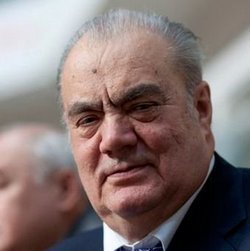
New projects: “He fills everything around with sense”
As an innate diplomat, Shaimiyev always knows how to speak the same language with the federal centre, with benefactors, with international organisations. UNESCO didn’t arrive in Tatarstan accidentally precisely during his rule and with his huge support. Raising the cultural and historical prestige of the republic, Shaimiyev seemed to lay the foundations of the identity of Tatarstan for many decades to come.
Yevgeny Bogachyov says that the idea of reviving Sviyazhsk came about as early as the mid-1990s: when ancient landmarks were dying on the island, where there weren’t normal networks — electricity, a gas pipeline... Shaimiyev immediately ordered to place huge power towers — this is how the restoration stage of the ancient landmark began.
“This isn’t frequent among men, but he has a passion for building and completing everything. Look how much he has done from scratch! He revived Bolgar and Sviyazhsk, now he is building these schools... He completes everything and methodically requires raising and restoring landmarks...”
While Zilya Valeyeva talks about how scrupulously he works on every project of this kind. She puts an example of the colour of the dome of Kul Sharif mosque — it turns out that Mr Shaimiyev himself chose it.
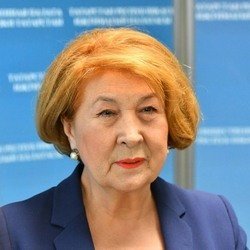
Outside perspective: “I consider Mr Shaimiyev one of the founder fathers of the Federation”
The first Tatarstan president has been considered a political figure of federal significance for long — he grew out of the frames of regional politician a long time ago.
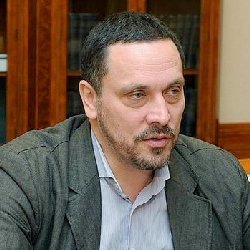
“Unfortunately, I haven’t had a chance of meeting Mr Shaimiyev personally. Though such a meeting could have been possible several times, we didn’t meet in the end. I carefully follow Tatarstan, the processes taking place in the republic. I think the comfortable life compared to the rest of Russia, Tatarstan’s obvious leadership in social institutions (though there are things to work on) — this is Mr Shaimiyev’s merit, without doubt. He didn’t obey the Kremlin in the 1990s when it comes to socio-economic reforms, saved traditional forms of the economic life of Tatar and other peoples, including the countrymen. His crucial merit is that he saved the village, the Tatar and Russian village. His government didn’t allow destroying and devastate the land and life on earth as foundation of national life, which you can see in Tatarstan’s neighbouring regions — a catastrophe simply befell them after the destruction of public farms and collective farms, towns.
As for federalism, Mr Shaimiyev was given the frames that allow Tatarstan to take a step back but keep advantages — this is his huge merit as a politician. Today it is absolutely obvious that Tatarstan’s sovereignty is much bigger than that of any region, which the foundation of what the name of the country has — the federation. The Russian Federation exists thanks to Tatarstan. The federation, let’s be honest, is Moscow and Kazan. Only Kazan demonstrated such a principled position. Ufa tried to do something for some time, but in Bashkiria, this turned into an authoritarian regime. And amid Murtaza Rakhimov’s activity, the other political aspects became insignificant.
The situation in Tatarstan is completely different. Precisely the political component of federative relations, the perception of Tatarstan as different by the Kremlin but also a real Russian region that has sovereignty became principal and fundamental. This is why I consider Shaimiyev a great politician who is one of the founder fathers of the Russian Federation who collected it from the chips it might have turned into in the early 1990s thanks to the activity of Kremlin reformers.”
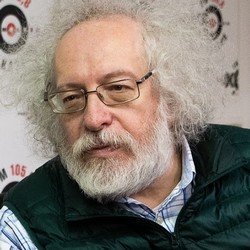
“I have met with Shaimiyev several times — both when he was the president and after that. I deeply respect him. Tatarstan residents probably have complaints about him because a president isn’t five kopeks to satisfy everybody. He had both correct and complicated decisions. But I know for sure that he didn’t allow a civic clash in Tatarstan, and this is his huge historical role. Different moods began to grow in Tatarstan in the 1990s, but he didn’t allow armed mass collisions, he managed to save his people that had different opinions about what road Tatarstan should take further. It is his undoubted historical meaning. And no matter what he did later— complicated, correct and wrong, nobody will cross this out.”
Focus: “What we do isn’t for saying us thank you”
Marat Galeyev pays attention to the fact that Shaimiyev has always quickly responded to society’s request as a regional leader and knew how to find the best moment to introduce a novelty — always thinking about people. For instance, this is how it was with the Land Code:
“We adopted the Land Code and law on private land property the first in Russia. It is Mr Shaimiyev’s merit too. Moreover, in the early 1990s, society wasn’t ready for such a reform, the people wasn’t mature yet, first of all, those who worked with land. He waited, but then this gradually began to develop and was adopted in the end. At that moment, he showed himself as a flexible politician. He understood it was necessary to do this — but this had to be done on time.”
Shaimiyev has always told his subordinates considering the experience of the 90s: “Of course, when people stay and require something, you want to promise them something good, but it is such a great temptation! But never promise what won’t happen. If you promised it, this must be done”. Zilya Valeyeva talks about this. According to her, the first Tatarstan president always keeps his promises, moreover, no matter if it is a large-scale construction project or a promise to a specific person.
There is another case that characterises Shaimiyev’s personality in one his phrase:
“Once our delegation attended a big event in Bashkiria,” Zilya Valeyeva says. “I had a chance of having dinner with Mr Shaimiyev and Mr Rakhimov. Rakhimov was in a bad mood, and it was noticeable. He explained at dinner: a big social facility in a district was opened on that day, and while everybody was happy, there was a woman who came to the president and reminded him that their water well also didn’t work there. And he was sad as a person that instead of citizens’ gratitude he received a new portion of criticism. They are also living people, they also can be sad... And then Shaimiyev told him: ‘So what? Murtaza, we have been working with you for so much time. Haven’t you understood yet that no matter what we do isn’t for saying us thank you but because we cannot help but do it!’ Imagine how one should think to work without hoping to hear thank you but simply to change life around!”
Energy: “Do you imagine Shaimiyev to simply grow cabbage?”
Kilometres of articles have been written about Shaimiyev, tens of interviews have been done — in 30 years, he has managed to become a legendary person, an epic man. And even today when it has been ten years since he retired as president, his figure remains big and important. The work of the state adviser protecting the identity of the republic and the Tatar people is unique. Mr Shaimiyev seems to be very far-sighted: simultaneously restoring holy places of two religions, Islam and Christian, closely working with UNESCO, developing the network of multilingual schools, he lays new foundation stones to the future that cannot be evaluated in money... The tireless desire to work, the impossibility to stay still is one of the main qualities everybody who knows him notes.
Rafael Khakimov is sure:
“I can’t imagine Mr Shaimiyev to decide: ‘That’s it, I will rest.’ He constantly works, he needs it like the air.”
“The life task of such people as Shaimiyev can’t run out. And he finds the energy to take on bigger projects he is implementing now. Do you imagine Shaimiyev to simply grow cabbage like Emperor Diocletian? Neither do I. When he finishes the construction of Sviyazhsk and Bolgar, when he stops working on the network of multilingual schools, I am sure he will make something else up,” Yakov Geller says.
Zilya Valeyeva, chairwoman of the Tatarstan Civic Chamber, is convinced: nobody dares say that Shaimiyev has burnt out. She assumes:
“A person burns out when does everything mechanically. While Mr Shaimiyev does his every business with sense every day. He understands what he works for and knows how important it is for people. How to live without getting tired? This is surprising human wisdom. Mr Shaimiyev’s example is how to live without burning out...”